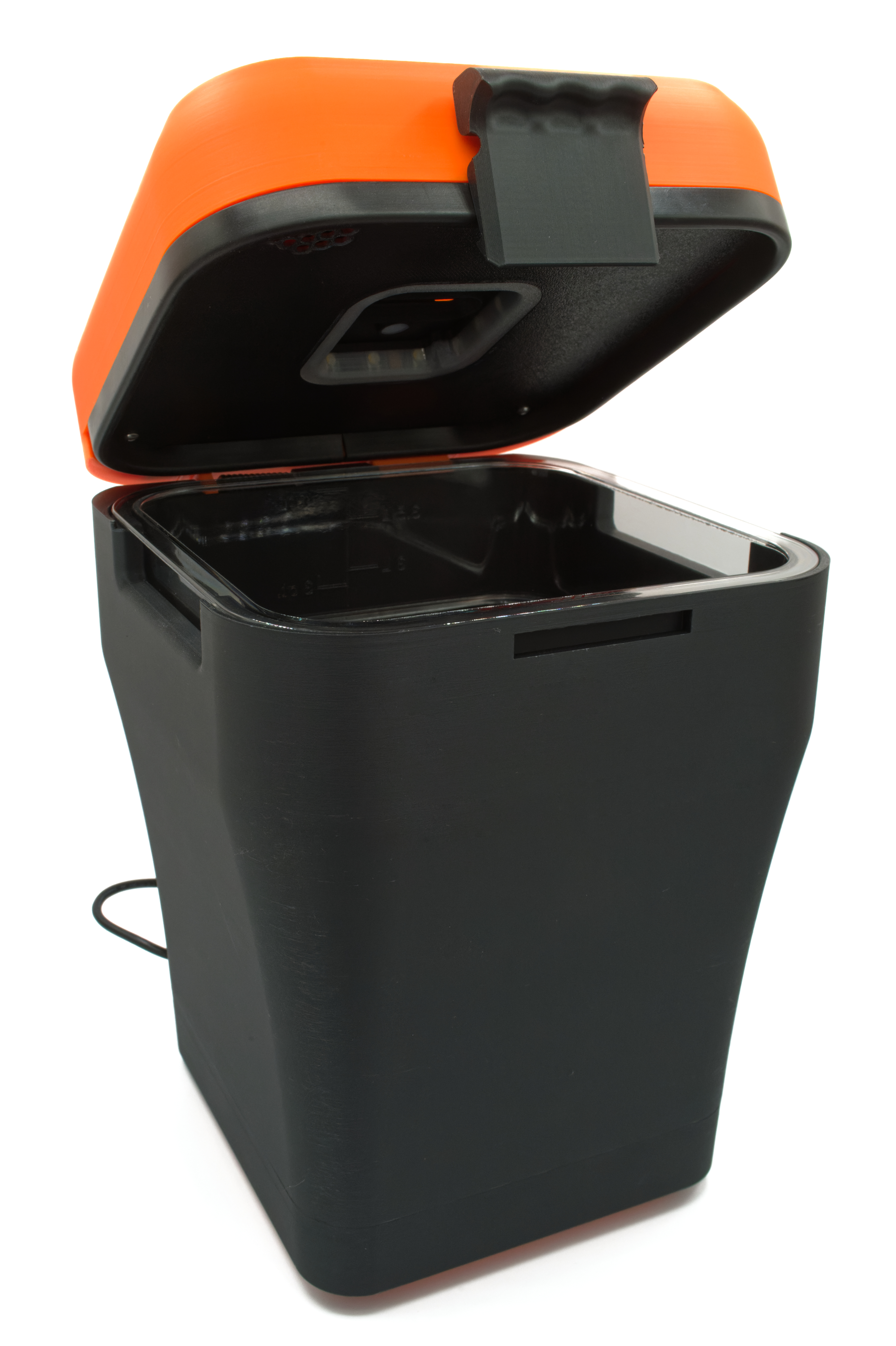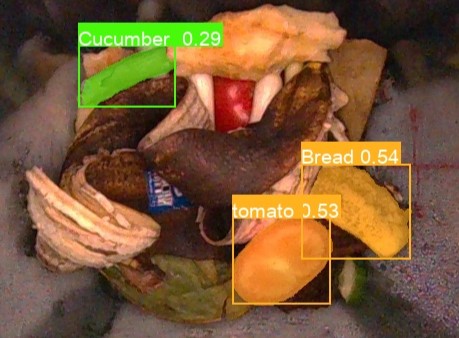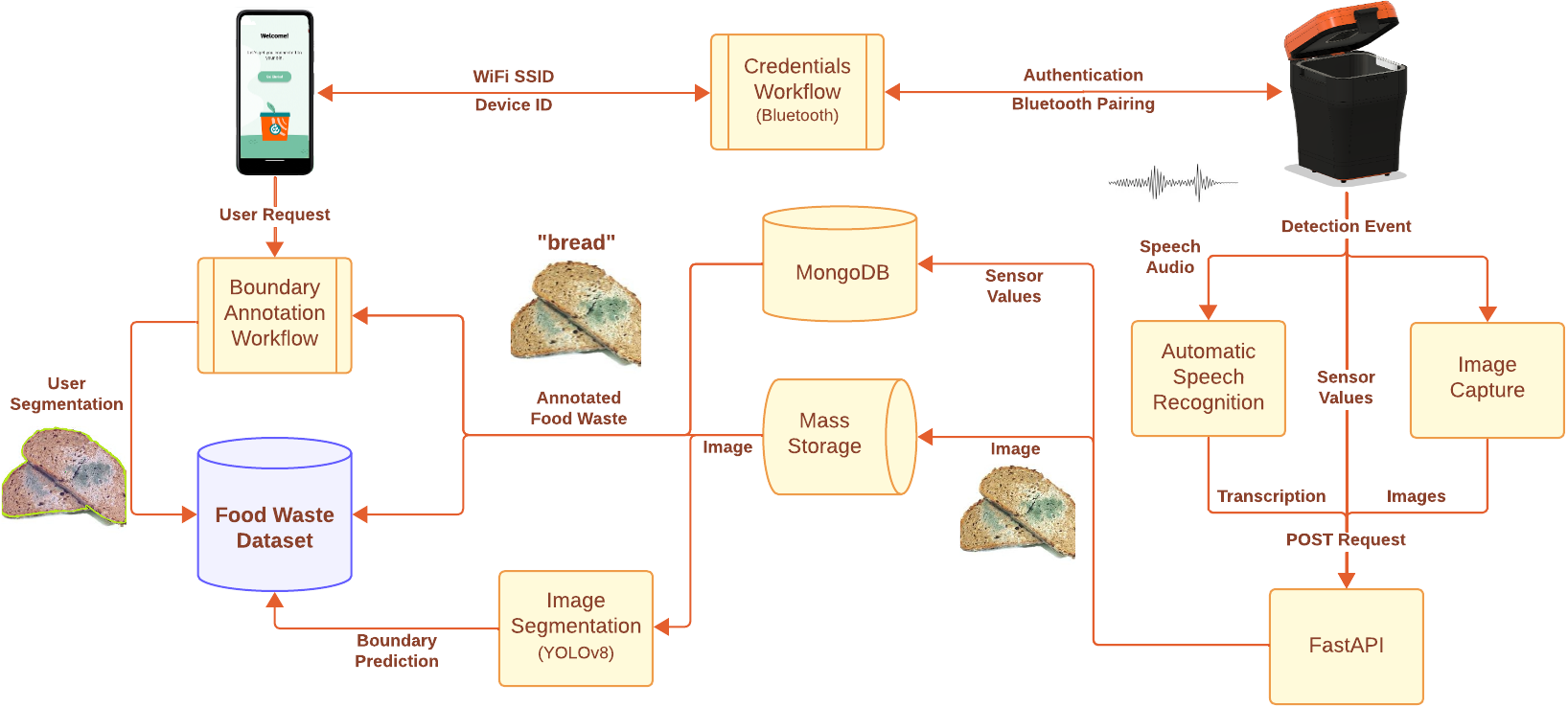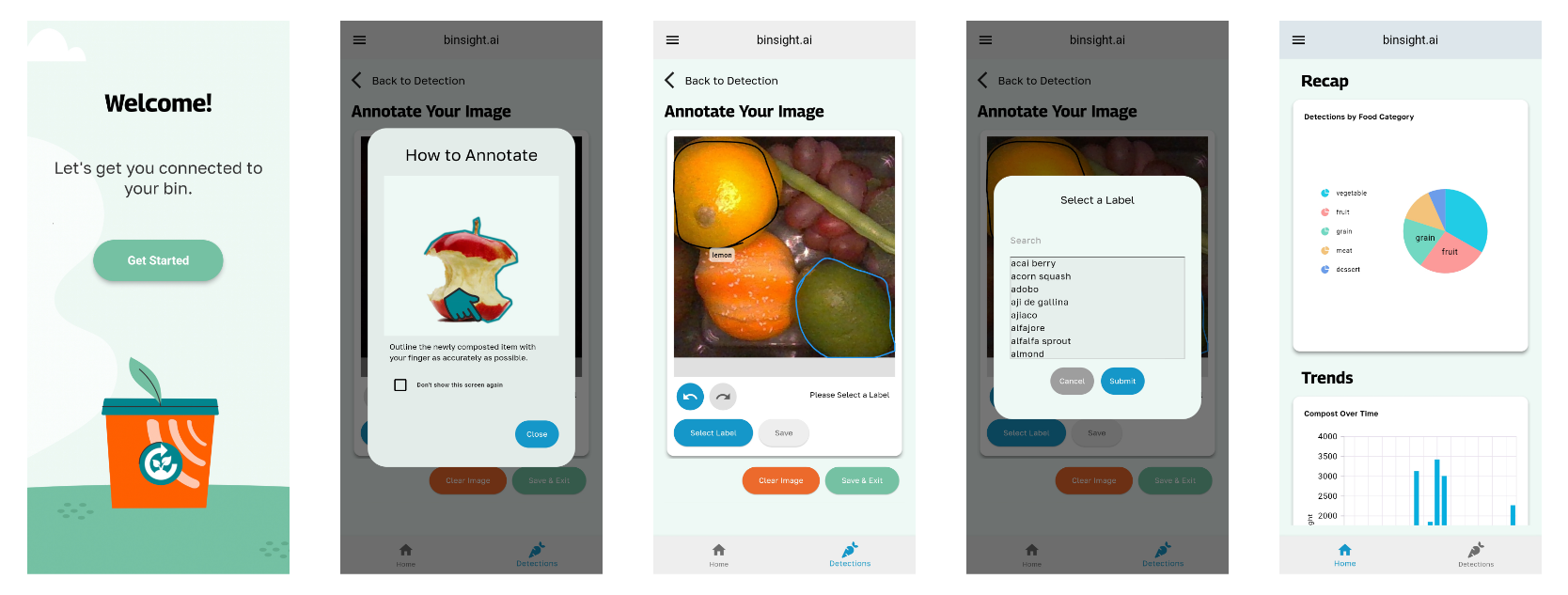Smart Compost Bin
Food waste continues to strain the global food supply even as millions struggle with food insecurity. A lack of effective food waste measurement solutions obstructs domain experts from guiding policy towards sustainable food resource management. We propose a system for measuring household food waste using an AI-enabled compost bin. Food waste identification can be framed as a computer vision task, however no public datasets of labeled post-consumer food items have been released to date. To power the development of computer vision models for food waste identification, we design a compost bin equipped with imaging sensors capable of capturing 2D, 3D, and thermal information about discarded food. This device encourages sustainable composting practices while building a novel dataset of commingled food waste images annotated with descriptive labels and segmentation masks. We design a volunteer-driven study to deploy fifty of these devices in households across the state of Oregon.

Our research has three primary objectives:
We design and manufacture the Smart Compost Bin, a low-cost AI-enabled device which automatically collects image and sensor data for each disposed food item.
To produce the first annotated, public image dataset of post-consumer food, we will conduct a pilot study with fifty households to annotate images of food waste using our companion iOS/Android app.
We will use our dataset to train a computer vision model to automatically measure household food waste by segmenting disposed items from images of commingled food refuse


You can see our first publication, describing the design and implementation of the Smart Compost Bin here.
This work was supervised by Dr. Patrick Donnelly at Soundbendor Lab, Oregon State University.
Sponsored by the Foundation for Food and Agriculture Research and Kroger Zero Hunger Zero Waste Foundation.

